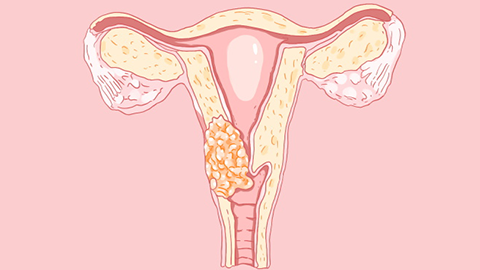What are the causes of lower abdominal pain after cervical cancer screening?
Generally, lower abdominal pain after cervical cancer screening may be caused by instrument stimulation, cervical mucosal injury, pelvic congestion, infection, or exacerbation of pre-existing pelvic inflammatory disease. If symptoms persist or worsen, it is recommended to seek timely medical treatment at a formal hospital. Detailed analysis is as follows:
1. Instrument Stimulation
During screening, instruments such as speculums and sampling brushes may cause temporary irritation to the cervix and surrounding tissues, triggering uterine contractions and resulting in lower abdominal pain. This condition is usually mild; bed rest, avoiding strenuous activity, and drinking warm water appropriately can help alleviate symptoms, which typically resolve spontaneously within 1-2 days.
2. Cervical Mucosal Injury
Minor damage to the cervical mucosa may occur during sample collection, causing localized inflammatory reactions that result in referred pain to the lower abdomen. Maintaining external genital hygiene, avoiding tub baths and sexual intercourse, and preventing infection are necessary.

3. Pelvic Congestion
Stimulation during screening may accelerate pelvic blood circulation, leading to pelvic congestion, which manifests as a sensation of heaviness and pain in the lower abdomen. Applying heat to the lower abdomen can help improve blood circulation and reduce congestion. Prolonged standing or sitting should be avoided, and appropriate walking may help relieve discomfort.
4. Infection
Poor hygiene after screening may lead to cervical or pelvic infection and subsequent inflammatory reactions, causing lower abdominal pain often accompanied by abnormal discharge. Prompt medical attention is needed, and under a physician's guidance, medications such as metronidazole tablets, cefuroxime axetil tablets, or clindamycin hydrochloride capsules should be used to control the infection.
5. Exacerbation of Pre-existing Pelvic Inflammatory Disease
If one already suffers from pelvic inflammatory disease, the screening process may aggravate the existing inflammation, intensifying lower abdominal pain, which may be accompanied by symptoms such as fever and fatigue. Treatment for pelvic inflammatory disease under a physician's guidance is necessary, such as using ceftriaxone sodium for injection, levofloxacin tablets, in combination with Kangfuyan capsules to alleviate symptoms.
In daily life, maintaining dry and clean external genitalia and wearing cotton, breathable underwear are important after screening. A bland diet avoiding spicy and irritating foods is recommended. Monitoring symptom changes is crucial, and immediate medical attention is necessary if lower abdominal pain persists for more than three days or is accompanied by fever, bleeding, or other complications.






